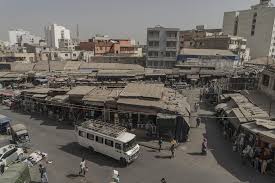Senegal Envisions Investing About $30.5 Billion In Development
The document is still a work in progress and could still change, according to a presidency official.

Senegal, a nascent oil and gas producer, intends spending about 12.8 trillion CFA francs ($21 billion) on development over the next five years and aims to garner another 5.7 trillion CFA in private investment, a draft government plan shows.
Public investment in education, energy infrastructure and a range of other projects is seen increasing by an average of 14.7% annually between 2025 and 2029, according to the plan, which was shared by the finance ministry. The document is still a work in progress and could still change, according to a presidency official.
- Advertisement -
The plan is being formulated by the new administration of President Bassirou Diomaye Faye, who took office in April and has pledged to tackle high levels of poverty and unemployment. It notes that a lack of transparency and bad management of public finances has stymied efforts to uplift Senegal’s 18 million people, that wealth and income disparities between those living in the capital and the countryside have widened and that the country is too highly indebted.
- Advertisement -
About half of the West African nation’s people who don’t resident in the main cities live below the poverty line, official youth unemployment stood at 22% in 2022 and one fifth of eligible children aren’t in school, official data shows.
The government intends to derive more revenue from its oil, gas, gold and other natural resources going forward, while reducing its reliance on loans under a “prudent, better and more-controlled debt policy,” the plan states. It envisions the country’s debt-to-gross domestic product ratio falling to 61% in 2029, and that the government will rely more heavily on local and regional markets for financing.
- Advertisement -
A recent review showed the debt-to-GDP ratio averaged 76.3% during former President Macky Sall’s last five years in power — higher than the 65.9% his administration had reported. The budget deficit meanwhile averaged 10.1% of GDP, almost double what had been previously stated, according to the review.
While the plan says that mining contracts and a fiscal framework for the oil and gas industry will be reviewed, it stops short of specifying that the terms will be renegotiated as Faye’s government had previously announced.
Source:norvanreports.com
- Advertisement -



